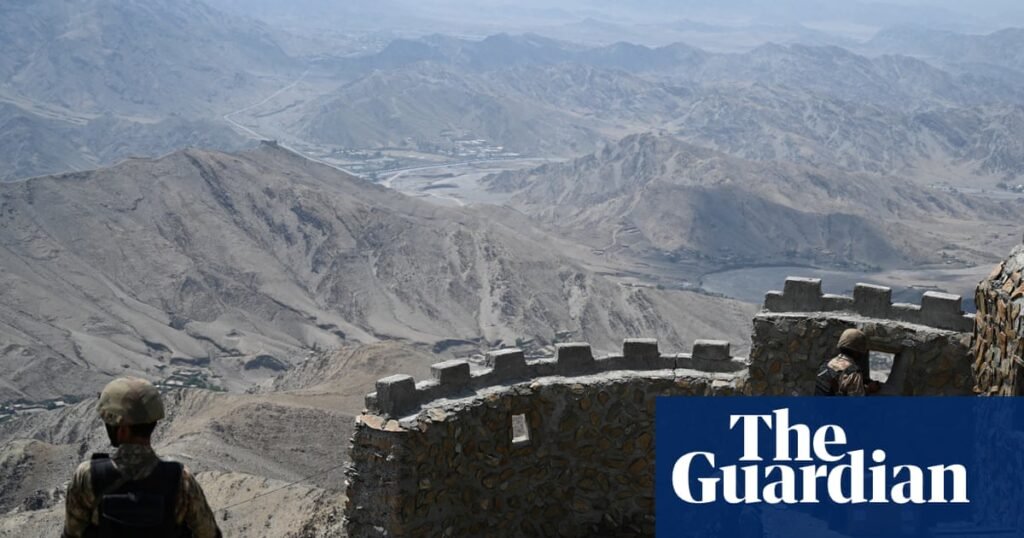Intense Clashes Rise Along Pakistan-Afghanistan Border Amid Ongoing Tensions
Recent clashes erupted along the Pakistan-Afghanistan border on Saturday night, following a Taliban attack on Pakistani military posts. This escalation of hostilities has further strained relations, already heightened by a series of events, including a Pakistani airstrike in Kabul earlier in the week, as confirmed by security officials from both nations.
Background of the Conflict
Taliban forces launched a series of counterattacks against Pakistani troops, accusing Islamabad of conducting airstrikes on Afghan territory. Senior Taliban officials from various provinces claimed they had successfully seized two Pakistani border posts in Helmand province, a notion supported by local authorities.
Pakistani Response to the Taliban Assault
Pakistani security officials have acknowledged the violent clashes occurring at multiple border locations. They emphasized their commitment to respond forcefully to any aggression. A spokesperson for the Pakistani government stated, “Tonight, Taliban forces began firing at several border points. We retaliated with artillery at four locations along the border.” The official further asserted, “We will not tolerate any aggression from the Afghan Taliban within our territory. Pakistani forces responded with heavy fire, effectively targeting several Afghan border posts.”
In their counterattacks, the Pakistani military utilized a diverse range of weaponry, including artillery, tanks, and both light and heavy firearms.
Recent Developments in the Region
This uptick in violence is not isolated. Earlier in the week, two explosions rocked the Afghan capital and another occurred in southeastern Afghanistan. Following these incidents, the Taliban’s defense ministry accused Pakistan of "violating its sovereignty." Such allegations add another layer of complexity to the already precarious situation.
Expert Insights on Border Tensions
Analysts are highlighting the deep-rooted nature of these border tensions. Michael Kugelman, a prominent South Asia analyst, described the circumstances as a "perfect storm for trouble.” He noted, “Intensifying cross-border attacks on Pakistani forces, unusually intense Pakistani strikes in Afghanistan, and Taliban retaliations have created a scenario ripe for conflict.” The situation is further complicated by Afghanistan’s refusal to recognize the border, along with a proliferation of misinformation surrounding the crisis.
Islamabad has grown increasingly impatient with Kabul but has notably refrained from explicitly confirming or denying its involvement in the recent airstrikes. Nevertheless, it has urged Afghanistan to confront the Tehreek-e-Taliban Pakistan (TTP), an organization responsible for the deaths of hundreds of Pakistani soldiers since 2021. The TTP has strong ideological ties with the Afghan Taliban and is believed to receive military training on Afghan soil.
Future Outlook and Potential De-escalation
Despite the serious nature of the ongoing crisis, some analysts, including Kugelman, express cautious optimism about a resolution. “The Taliban lack the capacity to fight the Pakistani military head-on,” he remarked. “Once the retaliations appease public anger, they’re likely to recede."
Lt. Gen. Ahmed Sharif Chaudhry, a spokesperson for the Pakistani military, acknowledged the ongoing strikes and emphasized that they are "taking every necessary action to protect the lives of the people of Pakistan." He urged the Afghan government to prevent its territories from being exploited for terrorism against Pakistan.
Understanding the Broader Implications
Security analyst Imtiaz Gul added that the recent clashes represent a culmination of long-standing tensions between the two countries, particularly in light of Pakistan’s kinetic actions against TTP hideouts. The constant refusal of the Afghan regime to take robust action against the TTP intensifies the situation.
Relations between Pakistan and Afghanistan have deteriorated significantly in recent months, primarily due to Islamabad’s allegations that Kabul is harboring TTP affiliates. Kugelman highlighted that Pakistan’s recent military operations in Afghanistan may provoke the TTP to retaliate, which could, in turn, incite further Pakistani military actions and perpetuate a cycle of violence.
Conclusion
Currently, the Pakistan-Afghanistan border spans nearly 2,600 kilometers (1,600 miles) of rugged terrain, known as the Durand Line. As both nations navigate this tumultuous period, the immediate focus remains on de-escalation and addressing the broader issues that contribute to ongoing hostilities.
In what is a challenging landscape for diplomacy and security, the situation remains fluid. While there may be temporary reprieves in hostilities, the underlying issues continue to threaten peace and stability in the region.
For further insights into the implications of these events, visit The Guardian and stay informed on this developing situation.


